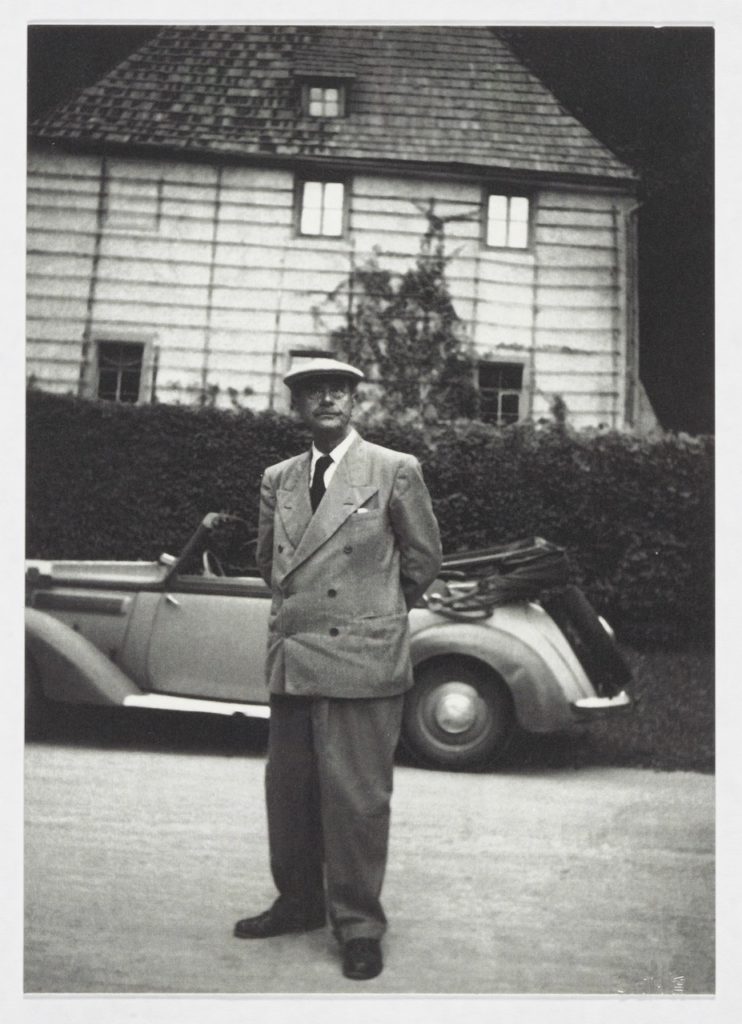#MutuallyMann – All Contributions
Three days of mutually reading Mann’s Germany and the Germans come to an end.
We would like to thank you all for the inspiring and creative contributions. We collected the texts and videos here, so you can get a better overview and look through them again. Also, many many thanks to everyone who posted, commented and discussed with us over the last week. 💐🎈
We hope you all found as much pleasure in reading and analyzing Germany and the Germans together as we did! Enjoy…

Day 1
Hans Rudolf Vaget: The first contribution came from literary scholar Hans Rudolf Vaget. During a visit at the Thomas Mann House, the renowned Mann expert got the discussion going by reporting on the significance and the role of Thomas Mann’s essay Germany and the Germans for post-war Germany as one of the very first attempts to honestly confront the question: How could Nazism happen in Germany? Watch the video here.
Roman Seebeck: German studies scholar Roman Seebeck put together a very helpful questionnaire for the first day of #MutuallyMann! When and where was the essay written? Who was involved in the creation of the text and which sources did Thomas Mann use? Read his questionnaire here.
David B. Morris: The German Area Specialist at the Library of Congress (LC), takes a closer look at Thomas Mann’s relationship with the library in Washington D.C. Mann was appointed a German literature consultant and fellow in 1941 and visited the LC on a regular basis. Read his article on Thomas Mann’s relationship with the Library of Congress here.
Day 2
Katrin Bedenig: A particularly interesting version of the speech typescript for Germany and the Germans has been preserved in the Thomas Mann Archive of the ETH Zurich (TMA). Katrin Bedenig, Director of the TMA allows us an exclusive glance at the typescript and gives us an insight into two pages that make Thomas Mann’s working process directly comprehensible. Find the photos and Katrin Bedenig’s text here.
Max Czollek: German poet, writer and stage performer Max Czollek gives a statement on how to embrace a marginalized “Germany of the others.” Watch his video here.
Alex Ross: Alex Ross is a music critic of The New Yorker and author of The Rest Is Noise: Listening to the Twentieth Century. In his video he takes a closer look at how Mann’s self-examination and the questioning of his fellow Germans are intertwined in the essay. Watch the video on Thomas Mann’s personal and collective self-examination here.
Veronica Fuechtner: The German Studies scholar at Dartmouth College comments on the Brazilian roots of the Mann family and the writers’ sense of belonging. Read her contribution Becoming German through Goethe here.
Stefan Keppler-Tasaki: German Studies Scholar and Thomas Mann House Fellow Stefan Keppler-Tasaki (University of Tokyo) focuses on the role of irony and raises the question as to whether “German” could also be read as a code for “American.” Read his text on the irony in Mann’s essay here.
Day 3
Olga Grjasnowa: Writer Olga Grjasnowa asks: “Who has the right to belong to the German nation and who does not?” Read her text on on why Germany still wrangles with the concept of nation here.
Jagoda Marinić: Novelist, playwright and journalist Jagoda Marinić asks if there is a German feeling of moral entitlement through self-criticism? Watch her video comment on German feelings of superiority here.
Juan Guse: Writer Juan Guse puts Mann’s essay on trial and states in his contribution: It did not age well. Does Germany and the Germans withstand a critical reading from today’s perspective? Read his text Where and How to Begin? here.
Kai Sina: Literary Scholar Kai Sina has a different position and comments on Mann’s essay in light of recent historical research – and a plea for hermeneutic fairness. Read his text Sincerity and Modesty here.
Meike G. Werner: German Studies Scholar Meike G. Werner writes about Tilman Riemenschneider, Eduard Berend and the fate of political persecution. Read her text Evasive Depth: Germany and the Germans here.
Maria Exner: Thomas Mann Fellow Maria Exner, deputy editor-in-chief at Zeit Magazin, brought together the threads of #MutuallyMann in her video commentary. Following Olga Grjasnowa, she emphasizes the topicality of Thomas Mann’s critique of a nationalist concept of freedom. Taking up Max Czollek’s contribution, she underscores the importance of acknowledging and promoting the long history of German diversity. And with Alex Ross she sees Mann’s essay as a current call for political self-assessment. Watch her video here.
Photo: Thomas Mann in front of Goethe’s garden house in 1949. Source: Thomas Mann Archive Zurich.